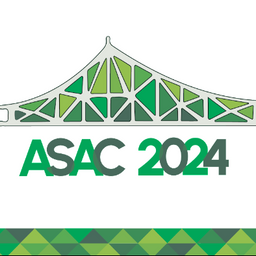Divisional Speaker - Ari Van Assche
My Session Status
What:
Keynote
When:
4:00 PM, Sunday 2 Jun 2024
(1 hour 15 minutes)
Where:
Université de Sherbrooke Longueuil Campus
- 3665 - Room sponsored by: Asper School of Business of University of Manitoba
Virtual session
This session is in the past.
The virtual space is closed.
Themes:
Divisional speakerIBPOMSTRHYBRID
Presentation title: Pathways to inform and enrich current research on international business policy
Abstract: Ari Van Assche—Deputy Editor of the Journal of International Business Policy—will identify four key research domains under the scope of international business policy that can particularly benefit from insights coming out of strategy, management, and marketing scholarship. Policymakers have long recognized the transformative impact that international business has on societies. International trade has been associated with economic growth, productivity improvements, and technological innovation; but it has also been linked to labor market polarization, the emergence of pollution havens, and the rise of populism. Global value chains have been connected to industrial and social upgrading, but they have also been related to territorial exclusion and weaponized interdependence. Multinational firms have been lauded for facilitating the global diffusion of sophisticated technologies and practices, but they have also been accused of exploiting foreign and domestic labor, avoiding taxes, and dodging government regulations. There is therefore a general recognition in public policy circles that a deep understanding of the intricate interplay between international business and public policy challenges—the good, bad, and ugly sides of it—is critical for the identification and formulation of effective international business policies.
Abstract: Ari Van Assche—Deputy Editor of the Journal of International Business Policy—will identify four key research domains under the scope of international business policy that can particularly benefit from insights coming out of strategy, management, and marketing scholarship. Policymakers have long recognized the transformative impact that international business has on societies. International trade has been associated with economic growth, productivity improvements, and technological innovation; but it has also been linked to labor market polarization, the emergence of pollution havens, and the rise of populism. Global value chains have been connected to industrial and social upgrading, but they have also been related to territorial exclusion and weaponized interdependence. Multinational firms have been lauded for facilitating the global diffusion of sophisticated technologies and practices, but they have also been accused of exploiting foreign and domestic labor, avoiding taxes, and dodging government regulations. There is therefore a general recognition in public policy circles that a deep understanding of the intricate interplay between international business and public policy challenges—the good, bad, and ugly sides of it—is critical for the identification and formulation of effective international business policies.



